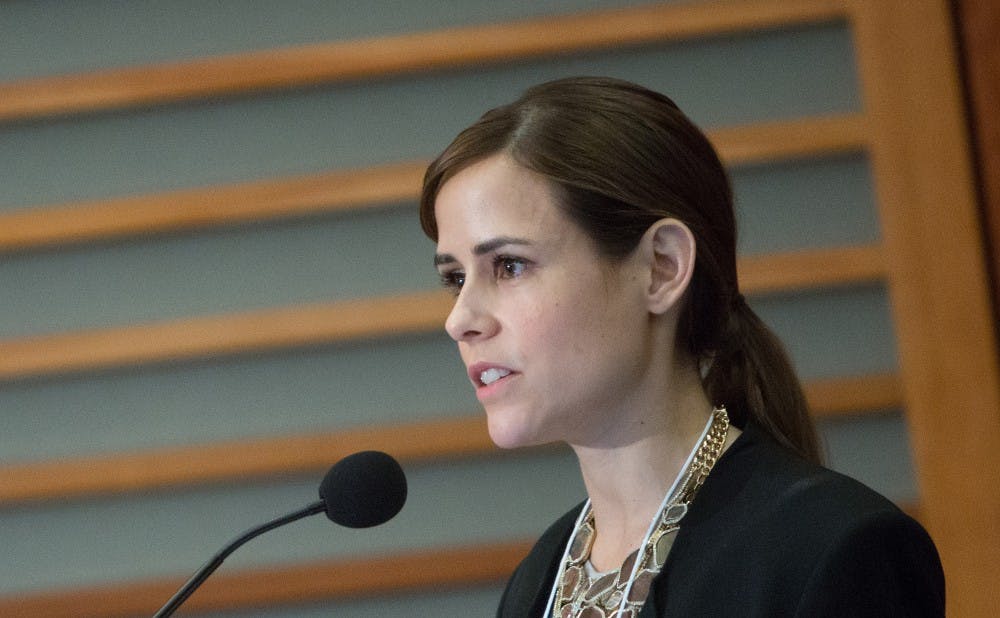Launched this Fall, the George C. Lamb Jr. Regulatory Fellows will connect students and faculty studying how to solve issues related to business, ethics and regulation. Duke's Kenan Institute for Ethics, Fuqua School of Business and Trinity College of Arts and Sciences will be collaborating to host the visiting fellows. Jennifer Miller, the founding director of Bioethics International and a lab fellow in the Edmond J. Safra Center for Ethics at Harvard University, is the program's first fellow. The Chronicle's Rachel Chason spoke with Miller to discuss her goals for the first year of work.
The Chronicle: This is the fellowship’s inaugural year—what do you think its creation brings?
Jennifer Miller: Duke’s new Rethinking Regulation program affords an interdisciplinary space to examine the intersection of ethics, policy and business. It focuses on a wide variety of business sectors ranging from finance to healthcare. It’s a unique program that provided a much needed opportunity.
TC: Can you talk about past work in this area?
JM: I’ve been based in Harvard [University’s] Edmond J. Safra Center for Ethics for the past two years researching ethical concerns about the pharmaceutical industry. A lot of people don’t think about the process medicines go through to reach their hand. So, I mapped out this process, examining the key decision points where ethics, governance, and public health interact. Two of the specific questions I focused on were: do pharmaceutical companies tell the public everything it needs to know about new medicines, or is there critical missing information? If there is a genuine and widespread transparency problem within companies and the industry, what can be done to govern and improve their transparency?
TC: What attracted you to Duke’s program?
JM: The short answer is Ed Balleisen's—the program director [and associate professor of history and senior fellow in the Kenan Institute for Ethics]—work on adaptive regulation. The longer answer, is the opportunity to study and test the effectiveness of possible governance strategies for this problem of misinformation, or lack of information, about new medicines and vaccines. It’s one of the few programs that allows you to complete action-oriented research and use a combination of ethics, governance and business perspectives. I’m looking forward to being able to work with Duke scholars to determine better ways to improve the behavior and trustworthiness of pharmaceutical companies, where needed, and I can already say it’s been a fantastic program choice.
TC: What kind of research will you be doing as part of the fellowship?
JM: I’ve created the first transparency ranking system for the top 20 largest pharmaceutical firms, and its gone through its pilot stage. I’ll be working this fall to publish and launch the program and continuing to study what makes a governance structure effective and sustainable. Duke students...are remarkable researcher assistants and already a great help. In the Spring I will teach a course on governance and healthcare innovation.
Get The Chronicle straight to your inbox
Sign up for our weekly newsletter. Cancel at any time.

